ANURENDERA Jegadeva, or better known as J Anu, is not just an artist. Whether he admits it or not, he is also a political observer and commentator. His art, which plays with, among others, “ideas of empire”, identity and belonging, are often satirical commentaries about Malaysian life and the life of the Malaysian.
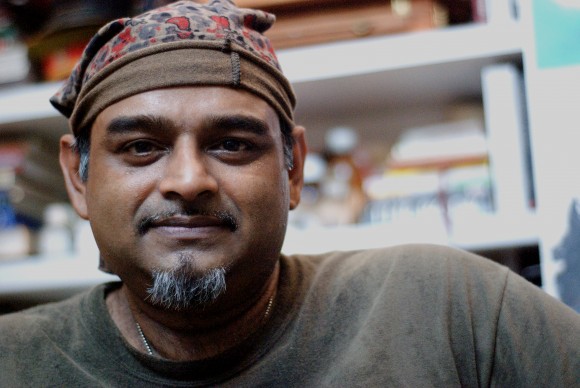
“I learnt to draw from Enid Blyton illustrations,” the visual artist of Sri Lankan descent says in an interview on 3 June 2011 in his Bangsar home. Empire and colonialism, he says, is the history that informs his work because these are what have formed Malaysian attitudes, aspirations and choices.
As an artist, Anu says he tries to “explore how we fit but without being recriminatory”. His paintings are often nostalgic and tinged with romance, but that doesn’t mean they do not make sharp commentaries about Malaysia. For example, in his 2010 solo exhibition at Wei Ling Gallery in Kuala Lumpur titled My God is My Truck, Anu paints a bloody cow head lying on a tiled counter. The oil on canvas is titled Portrait of my Father as a Cow.
He has held solo exhibitions since 1992, and his next solo will be from 9 to 30 Aug 2011 at Wei-Ling Contemporary at the Gardens Mall in Kuala Lumpur. The show will be titled Finding Graceland and will depict the artist’s search for new landscapes in his family’s home state of Perak.
Apart from being an artist, Anu was also senior curator for the Petronas Art Gallery from 2007 to 2010. Prior to that, he was gallery manager at the Faculty Gallery at Monash University in Melbourne, where he did his Master of Fine Arts. He has also been an arts manager, curator and journalist.
In this interview, he talks about being Malaysian, and the struggles involved in not seeing everything through a racialised lens – whether through his art or in his day-to-day experiences.
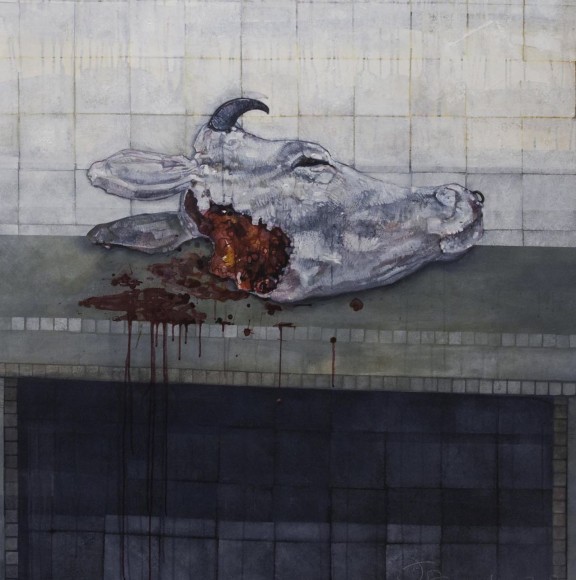
TNG: When and where were you born?
In Johor Baru in 1965. But we are Perak people.
So, how come you were born in Johor Baru?
Because my father was in government service in the Education Ministry. So we got transferred around. My [elder] sister, who now lives in Wales, England, was born in Kuantan.
And where did you grow up?
Till I was four years old, we were in Johor Baru. And then, we were in Kuala Lumpur. And that was it. In KL, we were in PJ to start with, then we lived near the zoo, then we were in government quarters in Ampang. Even school-wise, I was first in Alam Shah School in PJ, and then after that, the second half of my primary school we were in Jalan Kuantan School in KL, which was next to a teacher training college where my father was the principal.
And then, I was in Victoria Institution (VI) till Form Three [when the school principal who knew my dad told him]: “Jega, look, get your son away from VI because his group of friends are trouble.” We were the Lords of Rock. We were everywhere in town. You could see LOR graffiti everywhere. Ya, we were a bit naughty lah.
Then I was sent to La Salle where my aunt was – this was Eddin [Khoo]’s mother – so she could keep an eye on me. But even then, I ponteng school, even her class.
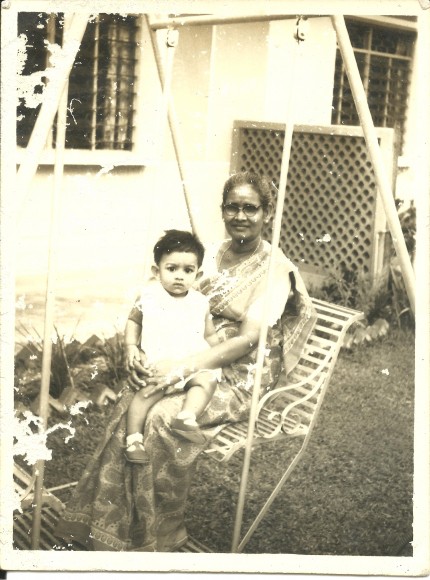
So, what do you remember the most about growing up in KL and PJ? Was race something you were even conscious about?
No, not in primary school. I think I became a little bit more conscious of race because my father had issues at work. And a lot of it was interpreted that it was because of race. I think that was the first time.
Actually, because my dad was in the ministry, he had loads of Malay friends, and [before that] it was a very different time [when] the whole Malay/non-Malay thing was never an issue. [At] Deepavali, our house would be full of people from the ministry, lots of Malay [Malaysians]. And it was never really an issue. Even in school, a lot of my friends were Malay.
What was his position in the ministry?
He was trained as a teacher. Then he became principal of a teacher training college, and then he was deputy director of curriculum, and finally he was chief inspector of schools of Malaysia. So, he did very well by the system.
He was the last Indian [in that position] in the service. There will never be another. I don’t know if it’s changing now. But I know in the decade after his retirement, there were few non-Malay [Malaysians] in the civil service who rose to that level.
[So], no matter what [the prime minister’s] intentions are, let’s ride with the 1Malaysia thing because it’s not a bad thing, right? I think the non-Malay [Malaysian] is so jaded and angry that we’re not willing to. We read everything as racialised as well.
When I was living in Australia, if my dad rang up and said, “Oh, I crashed my car today”, I would say, “Who bang you? Chinese ah? Indian ah? Malay?” because the implications are different, right? How angry you can get about being hit depends on what race the fellow is. I do it and I wish we could stop doing that.
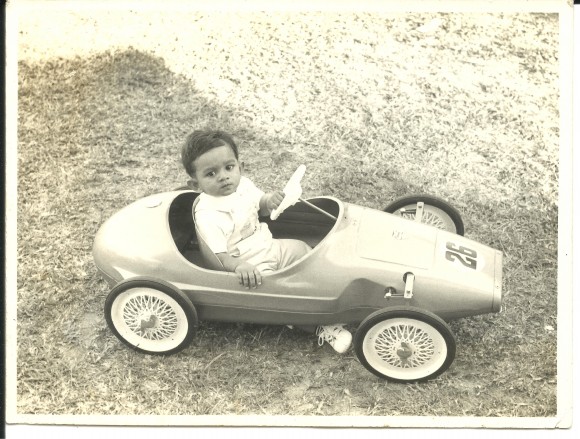
Let’s talk about your ancestry. Where were your parents/grandparents from? What generation Malaysian are you?
My dad’s side, they are from Alvai from Jaffna. And my mother’s family is from Vattu Kotte, also from Jaffna. They are both third-generation Malaysians.
My great-great-grandfather on both sides came out here (from Sri Lanka).
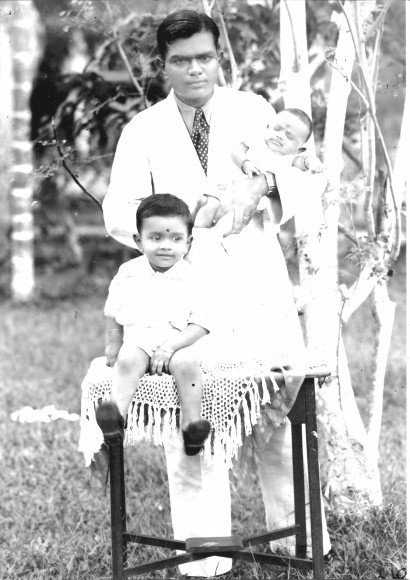
[But] I could have been racially categorised as “Dan Lain-lain”.
Oh, how come?
Because we are Sri Lankan Tamils. The Indians didn’t want the Sri Lankan Tamils because historically, the Sri Lankan Tamil thought he [or she] was better than the coolie Indian and didn’t want to be associated with Indians. The Sri Lankan Tamil was either clerical staff or an administrator. The Indian was below that, and caste came into play as well.
My father was very forward-thinking. In all our birth certificates, we’re registered as “Indian”, which is a no-no with our relatives. They were, “Oh my god! How can you say you’re ‘Indian’? You’re Sri Lankan Tamil. You’re better than them.” But my dad was a Merdeka man and [he had good survival instincts.]
Do you know why your ancestors came out here?
It would have been economic reasons. Probably there would have been people before them who had come and told them that it’s a wonderful place to earn money. The intention was always to go back eventually, like most of the Indian migrants.
My grandparents on my dad’s side all came to Perak first. Probably because of Perak’s infrastructural needs, [because it was] the centre of tin, and it was one of the richest states. They all came out as clerks or hospital assistants.
Even my great-grandparents – I think my mother’s grandfather was a hospital assistant. My grandfather on my father’s side was a PWD (Public Works Department) clerk, and he was the vice-president of the Perak Hockey Association as well. And he had Malay girlfriends. So, he was sent back to Jaffna to marry my grandmother because he was being naughty here.
My mother’s grandfather was the station [chief] in Port Weld.
What did your mum do?
My mum was an English teacher. And she lectured in a teacher training college.
By the time your parents got married and raised a family, they never talked about going back to Sri Lanka, right? Malaysia was home?
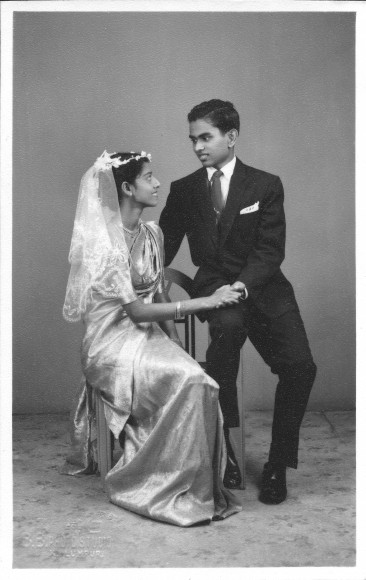
Malaysia was home. And I think there was so much prosperity here, so much hope for the future. And look, it’s all they ever knew, right? My grandfather might have thought about it.
Did it ever occur to you to migrate because you were sent abroad to study?
I never thought of not coming back. Malaysia was still home.
Then let’s talk about your going away to Australia. What motivated you to come back? And what was your relationship then to Malaysia?
As soon as we arrived in Australia, we could only talk about Malaysia as home. The same thing happened when we came back to Malaysia, we kept referring to Australia for a long time as “back home” (chuckles).
Why did we go to Australia in 1999? One, we were bored and tired. And you’d be surprised how much the whole [1998 sacking and treatment of] (Datuk Seri) Anwar (Ibrahim) affected us.
What did you think you would achieve by heading off to Australia? What were you looking for?
I think it was us taking a break. We really wanted to just go away and not have to exist within the context [of Malaysia] for a little while. And of course we landed in Australia, where everything was hunky dory. Everything was almost too easy (laughs) and it was so goddamn boring!
Then 9/11 happened, and that changed the world. And Malaysia was just plodding along with the same issues. And then Pak Lah (Tun Abdullah Ahmad Badawi) came into power, and that seemed to mark a shift again. We came back after Pak Lah came to power.
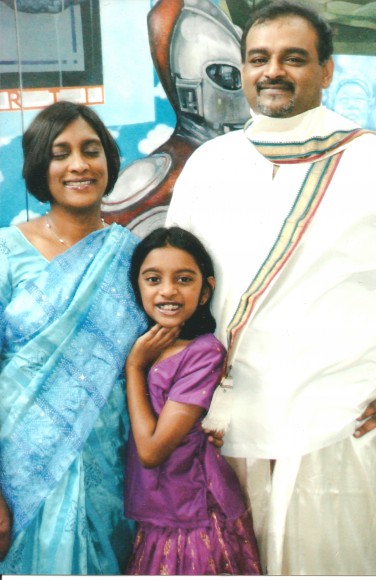
What is your art trying to achieve today?
All my art is an examination of how I fit in the world around me. I did it in Australia, too. It’s not a history painting. I’m not a political scientist. I’m very much an emotional creature. And they are how everyday stories about the place I live in affect my existence.
In the process of [my work], what I realised was, because I’m also interested in portraiture, that we’re completely bankrupt of heroes.
What aspects of your identity do you struggle with the most as a Malaysian, if at all?
The thing I struggle with most is not to be so racialised myself. I’m struggling a lot with that now because I think for too many years, we’ve always pointed fingers at other people when we ourselves negotiate our way through everyday life [with such racialised lenses].
I think I’d like to not have these preconceived notions of race based on cliché and prejudice. We live in such a racialised environment, so your gut reaction is always racial. I don’t know how we are going to overcome that.
One thing that I like about this 1Malaysia thing, which (Prime Minister Datuk Seri) Najib (Razak) himself has said, [is that] for too long we have used the word “tolerate” or “racial tolerance”. Why the hell should I be tolerated after 300 years? It’s about acceptance and understanding, right?
Describe the kind of Malaysia you would like for yourself and future generations.
Easy answer to that is, “Oh, when we don’t see ourselves according to race.” I think we had it for a brief shining moment post-Independence, and in the lead-up to Independence. That would be nice, but I think it will take 100 years for things to change here.
So what do you wish for Malaysia that you don’t see happening in our lifetime?
Well, the whole concept of 1Malaysia. That this is one Malaysia only. We don’t have any other country. We’ve done the whole going-to-Australia, trying-to-live-in-England thing. This is who we are, this is where we’re from. Malaysia is our home. There must be a context that allows for that. There’s nowhere else to go. ![]()
The book Found in Malaysia, featuring 50 of our best interviews plus four previously unpublished ones with Datuk Zaid Ibrahim, Tan Sri Rafidah Aziz, Datin Paduka Marina Mahathir and Ramli Ibrahim, is available at all good bookstores for RM45.


Deep says
Well done Anu! Keep it up
JW Tan says
A braver man than I!
Malaysia will always be my home in my heart, but unlike Anu, I don’t have the guts to give up what I have built overseas to return to the uncertainty of a racialised existence.